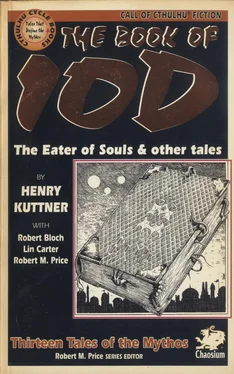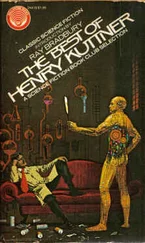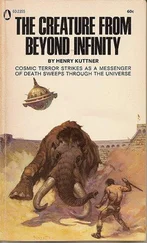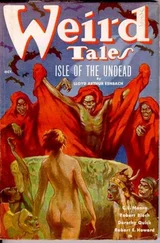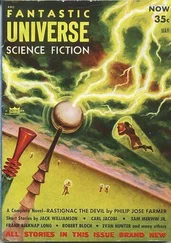Henry Kuttner - The Book of Iod
Здесь есть возможность читать онлайн «Henry Kuttner - The Book of Iod» весь текст электронной книги совершенно бесплатно (целиком полную версию без сокращений). В некоторых случаях можно слушать аудио, скачать через торрент в формате fb2 и присутствует краткое содержание. Год выпуска: 1995, ISBN: 1995, Издательство: Chaosium, Жанр: Ужасы и Мистика, на английском языке. Описание произведения, (предисловие) а так же отзывы посетителей доступны на портале библиотеки ЛибКат.
- Название:The Book of Iod
- Автор:
- Издательство:Chaosium
- Жанр:
- Год:1995
- ISBN:9781568820453
- Рейтинг книги:5 / 5. Голосов: 1
-
Избранное:Добавить в избранное
- Отзывы:
-
Ваша оценка:
- 100
- 1
- 2
- 3
- 4
- 5
The Book of Iod: краткое содержание, описание и аннотация
Предлагаем к чтению аннотацию, описание, краткое содержание или предисловие (зависит от того, что написал сам автор книги «The Book of Iod»). Если вы не нашли необходимую информацию о книге — напишите в комментариях, мы постараемся отыскать её.
The Book of Iod — читать онлайн бесплатно полную книгу (весь текст) целиком
Ниже представлен текст книги, разбитый по страницам. Система сохранения места последней прочитанной страницы, позволяет с удобством читать онлайн бесплатно книгу «The Book of Iod», без необходимости каждый раз заново искать на чём Вы остановились. Поставьте закладку, и сможете в любой момент перейти на страницу, на которой закончили чтение.
Интервал:
Закладка:
At any rate, I was his beneficiary, and my uncle’s bequest had been generous enough, despite his rather odd stipulation that I burn several listed volumes from his vast library and fill in the surprisingly large subcellar of the house.
I soon made ready to discharge the first of these obligations, starting a fire in the huge old hearth. I needed the warmth anyway, I reasoned, so why not take care of some business as well? The sooner my tasks were accomplished, the sooner the property would be legally mine.
It was not difficult to locate the books which my uncle had apparently hoped might follow him into whatever afterlife had claimed him. A few volumes were illustrated pornographic works of a quite spectacular character, exploring depths of perversion I had never even imagined. Into the flames they went. My glimpses of random pages had been enough to unsettle my stomach, so it was with relief that I turned to the rest of the books.
Several of the titles meant nothing to me, though languages had been a favorite interest of mine in college, and some of the strange tomes baited my curiosity. One called The Book of lod was written in a scramble of Greek and Coptic, and seemed to be a Gnostic work of some kind. The Cabala of Saboth was apparently a treatise on angelology composed in a kind of barbarous Yiddish of which I could make little sense. Another volume, the Confessions of the Mad Monk Clithanus , was in readable but debased Latin. I dimly recalled having heard of it, an obscure specimen of the vast vision literature of the Middle Ages.
Might not some of these books be worthy of preservation or sale? They might be of real interest to an expert who knew what to make of them. Still, I did not want to violate the conditions of the will and risk losing my inheritance. Nothing, however, was preventing me from a leisurely perusal of the collection.
At last I came to a volume that intrigued me more than any of the others. My first reaction was one of mild revulsion, as its leathery binding seemed uncomfortably reminiscent of human hide. No less disorienting was the utterly unfamiliar tongue (transliterated into English characters) in which it was composed. The only discernible English word occurred in a partial translation of the title, penned in my uncle’s handwriting on the title-page—the R’lyeh Text . I tried my skill at enunciating a few underlined words on the page where a bookmark had been placed: “ mglw’ nafh fhthagn-ngah cf ’ayak ’vulgtmm vugtlag’n… ”
The words echoed in the large room, then were lost amid the crackling of the fireplace. And it was there, after all, that the books should be going, but the hour had grown late, and I decided to resume my duties in the morning.
Preparing one of the beds upstairs, I turned in for the night. It had been a long day, and I soon fell asleep, disturbed only briefly by the abnormally loud chorus of frogs and whippoorwills in the woods at the edge of the lot. Yet perhaps they troubled my rest more than I realized at the time, for my dreams were shot through with visions of great forms, half saurian, half octopoid, ranged against backgrounds of forested slopes and carven masonry.
II.
Only partly rejuvenated by the night’s sleep, I rose, prepared a light, cold breakfast, and carried my plate to the study where I began again to peruse the contents of the library. Uncle Absalom had made a file of clippings from local papers dealing with bizarre, yet seemingly unrelated, matters. Several items from the Lancaster Record had to do with unexplained disappearances and cattle mutilations. All of these clippings looked to have been filler material from the back pages. What Uncle Absalom could have found to interest him in these peculiar scraps was beyond me, yet already I had seen adequate proof of the old man's salacious and prurient tastes.
My reverie was interrupted by a knock at the door. The noise startled me, shattering as it did the silence which had encompassed me since the previous evening. Opening the front door I was greeted by the sight of a local police officer. The middle-aged patrolman was eyeing me suspiciously, but seemed to relax a bit as we talked. It seemed that during the night some local farmer’s two prize bulls had disappeared. The officer was cruising about in search of any sign of the thieves when he noticed the smoke from my chimney. Knowing that Absalom Mueller had died a month or so earlier, he thought it best to investigate. When I introduced myself as old Absalom’s nephew and heir William, he seemed satisfied and willing to leave to continue his search. Halfway down the steps, however, he turned to ask if I planned on settling down in Tophet. A natural enough question, to be sure, even a polite one under ordinary circumstances, but I could not help noticing a certain anxiety in his manner as I said that yes, I did hope to establish myself in the community.
Closing the door, I wondered what the policeman’s question implied. A moment’s thought suggested that Uncle Absalom might have acquired some kind of unsavory reputation among the townspeople, and this was not hard to imagine given their rural piety and his rather outre tastes. Who knew, or cared, what he had done to earn such ill repute; what worried me was that I might well have inherited my uncle’s outcast status. And this was no way to start fresh in new surroundings. I decided that the books and papers could wait. Perhaps a visit to town would answer some of my questions.
I estimated that by the time I had made myself presentable and arrived on the main street of Tophet, most of the townspeople would be up and around, especially as this was primarily a community of small farmers who rose with the sun. True, most might be expected still to be busy with chores, but I hoped I might meet at least a few of my new neighbors. If I found no clues as to my (perhaps imaginary) mystery, still I might show myself to be no ogre and even make a few new acquaintances. With these calculations I set off for town.
But my hopes were disappointed. The friendliest response I could elicit from the few stragglers I accosted was a hurried “Nice to meet you,” and I suspected that even these scant words were not meant. Was it that they feared me as Uncle Absalom’s successor in some mischief? Or were they simply ignorant peasants who shrank from contact with any newcomer? The latter was not after all unlikely, since I believed I noticed enough similarity in the faces I saw to suspect inbreeding with the consequent mental decadence.
An idea occurred to me, and after picking up a few needed groceries, I returned to my car, heading for the roadside stand where yesterday I had gotten directions. The old fellow who ran the pumps there had at least known the location of Tophet, and he might know more. And not being a resident, he might be less tightlipped than the others.
But here, too, I was disappointed. When I arrived at the station, the door to the cottage was locked and the blinds drawn. Fresh tire-marks in the dust and other small clues made me wonder if the little store were not occupied after all. The silence of the place seemed laden with anxious tension, as of someone hiding—almost as if the proprietor and his customers had seen me approach and frantically sought concealment. Baffled, I went back to the car to return home (for that is how I had already come to regard the old place). But as I pulled out into the road, I caught a glimpse of something that had eluded me before. Suddenly I noticed a makeshift hex sign, painted on a large circle of zinc, perhaps recently the bottom of a wash tub, and nailed onto the front wall of the store, above the door. Somehow I had omitted to notice it just minutes before, but my preoccupation would explain this. What I was fairly sure of was that no such sign had been present the day before!
Читать дальшеИнтервал:
Закладка:
Похожие книги на «The Book of Iod»
Представляем Вашему вниманию похожие книги на «The Book of Iod» списком для выбора. Мы отобрали схожую по названию и смыслу литературу в надежде предоставить читателям больше вариантов отыскать новые, интересные, ещё непрочитанные произведения.
Обсуждение, отзывы о книге «The Book of Iod» и просто собственные мнения читателей. Оставьте ваши комментарии, напишите, что Вы думаете о произведении, его смысле или главных героях. Укажите что конкретно понравилось, а что нет, и почему Вы так считаете.
